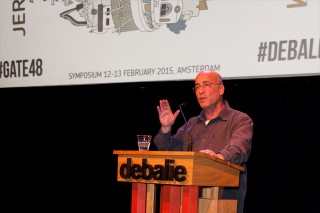
The conflict in and over Jerusalem: when religion and nationalism merge
12 February 2015 20:30, De Balie
Hillel Cohen, historian studying Jewish-Arab relations in Palestine/Israel at the Hebrew University, Jerusalem.
According to Jewish and Muslim tradition, Jerusalem is the centre of the world. In many ways it is also the centre of the conflict. The reason is obvious: the Israeli-Palestinian conflict is both a national and a religious conflict in one. Jerusalem is the most central religious and national symbol for both peoples and more importantly, their raison d’être.
Nearly fifty years of Israeli control over both parts of the city has allowed Israel to consolidate its territorial hold over the city through expropriation of land and the building of huge neighbourhoods. This was done in an attempt to reduce the Palestinian presence in the city. The Palestinians for their part have formulated a strategy of sumud – a firm grip on the ground, continuance of living in the city and strengthening the Arab identity of Jerusalem, also under Israeli rule. And from time to time – an armed struggle is organized against the Israeli occupation.
The question whether a compromise is possible in Jerusalem, either by division or through equal sharing of life in the city, has been hovering in the air for years. Today however, it seems that there is no significant support on both sides of such solutions.